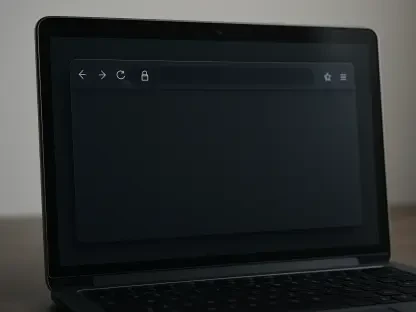The recent detection of a critical vulnerability in Adobe ColdFusion versions 2023 and 2021 has heightened concerns surrounding the security of web applications utilizing this software. Tracked as CVE-2024-53961, this flaw leverages a path traversal weakness, which permits unauthorized access to arbitrary files on vulnerable servers. Adobe’s assignment of a Priority 1 severity rating to this vulnerability underscores the urgency, particularly since proof-of-concept exploit code is already available and enhancing the risk of real-world attacks. This vulnerability threatens to expose highly sensitive system data such as configuration files and database credentials.
Path Traversal Vulnerability Exploit Risks
The core of this vulnerability lies in its ability to let attackers manipulate file paths within Adobe ColdFusion, thereby gaining access to sensitive and restricted system data. Path traversal vulnerabilities typically occur when an application fails to properly validate or sanitize file path inputs, allowing attackers to read files outside the intended directories. This can lead to the exposure of critical information that could subsequently be used to facilitate further malicious activities. It’s important to note that not only does this type of attack provide access to sensitive data, but it also significantly increases the risk of system compromise by revealing potentially exploitable weaknesses within the server’s configuration.
Adobe ColdFusion versions 2023 (up to Update 11) and 2021 (up to Update 17) are directly affected by this vulnerability. The critical nature of this flaw means that server administrators need to act swiftly to protect their systems. Attackers can exploit this weakness to access password files, system configurations, and other crucial data. As a result, organizations using these versions of ColdFusion are at a substantial risk of security breaches. The presence of proof-of-concept exploit code in the public domain further amplifies the urgency for immediate remediation measures.
Adobe’s Swift and Decisive Response
In response to the discovery of the path traversal vulnerability, Adobe has issued out-of-band security updates on December 23, 2024, which address and resolve the identified weakness. ColdFusion 2023 Update 12 and ColdFusion 2021 Update 18 provide the necessary fixes to mitigate the risk of file system read exploitation. The updates are labeled as Priority 1, indicating the critical nature of the patch and the immediate need for application. Adobe’s prompt release of these updates underscores their commitment to safeguarding their users against potential cyber threats posed by this vulnerability.
Understanding path traversal vulnerabilities is crucial for comprehending the severity of this issue. These weaknesses arise when inputs for file paths are not properly validated or sanitized, enabling attackers to traverse outside of the permitted directories. The consequence is unauthorized access to sensitive files and data, which can lead to significant security incidents. By quickly responding with updates, Adobe aims to eliminate the exploitation routes for this flaw and protect their customers’ systems from potential breaches.
Mitigation and Immediate Actions Required
The recent discovery of a critical security flaw in Adobe ColdFusion versions 2023 and 2021 has raised significant alarms about the safety of web applications using this software. Identified as CVE-2024-53961, this vulnerability exploits a path traversal weakness, allowing unauthorized users to gain access to arbitrary files on compromised servers. Adobe has assigned a Priority 1 severity rating to this issue, highlighting its importance. The urgency stems from the availability of proof-of-concept exploit code, which significantly raises the likelihood of real-world attacks. Such attacks could potentially expose highly sensitive system data, including configuration files and database credentials. This vulnerability’s existence magnifies the risks for any business or individual using ColdFusion, as it paves the way for unauthorized data access and potential system breaches. The security of web applications reliant on ColdFusion is at substantial risk, making it crucial for users to act swiftly to mitigate this threat and safeguard their data and systems from exploitation.









